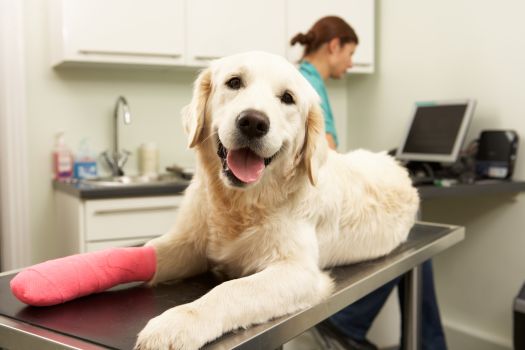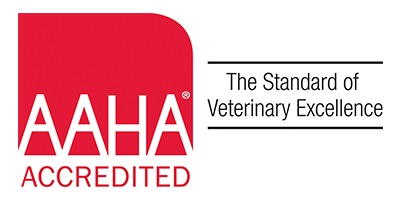Medical Services

Hudson Road Animal Hospital is a full service animal hospital. We offer diagnostic, surgical, and critical care services. Our diagnostic services include an in-house laboratory, radiology, EKGs, and ultrasound. Orthopedic and soft tissue surgeries are performed using human-quality gas anesthesia. Our critical care facility features blood pressure monitors, pulse oximetry, EKG monitors, oxygen cages, and temperature and humidity-controlled intensive care units. We also have acupuncture available as a popular alternative to traditional medicine. We stand by our motto: "At HRAH, We Diagnose Before We Treat."
Preventative Care
Routine physical examinations offer the best protection for your pet. These examinations help us detect problems in their early stages. This can help you avoid costly medical bills if the problems are left alone to worsen. Pets age four to six times faster than humans. Because of this fact, pets need routine physical examinations more often and it is recommended that they have physical examinations yearly. At these visits, we may recommend laboratory work to look for organ and blood diseases which are difficult to detect on a routine physical examination.
Preventative care doesn't just include physical examinations. It also includes immunizations, routine dental care, and parasite control. All these things need to be addressed to ensure your pet is receiving the best level of care available.
Hudson Road Animal Hospital has had a tradition of providing compassionate and professional care for the lifetime of your pet. We always look forward to meeting with you regarding your pets care.
Surgery
We provide a wide range of surgical procedures including orthopedic, cosmetic, general and laser surgery. Each of these procedures is performed in a dedicated surgerical suite. The environment is kept sterile, just as in a human hospital.
As your own medical doctor would require presurgical screening for you, your pet needs presurgical screening to determine their health status. This screening is important to your pet's safety by identifying any problems that were not readily apparent after a thorough physical examination. Presurgical screening varies from patient to patient, but may include:
- Complete blood counts to assess blood components
- Blood chemistry profiles to assess organ functions
- Urinalysis
- Radiographs
- EKG
There is always a risk of placing an animal under general anesthesia, but these risks are very low. There have been many recent advances in veterinary surgery including anesthesia, surgical monitoring, and surgical techniques.
Patients are monitored during surgery with an EKG, a pulse oximeter, blood pressure monitors, and respiratory monitors. These monitors are of the same type used in human medicine. Each patient receives anesthesia tailored to their health, as well as pain relief to keep both them and you comfortable.
Anesthesia
When someone undergoes surgery, usually some form of anesthesia is used to alleviate the pain. Just like humans, animals also need anesthesia to reduce the pain during surgical procedures. Animals can't tell us if they feel pain, but we know pain exists. Anesthesia is essential in surgical operations because it ensures a safe procedure. If an animal were to move due to pain, the doctor would not be able to perform a safe procedure. Anesthesia can be thought of as a short nap for your pet, which helps them safely through a surgical procedure.
Pre-Anesthetic Testing: Its Importance In Surgery
Anesthetics used in veterinary hospitals are exceptionally safe. However, potential risk may occur if your pet is not healthy. In order to minimize this risk, we require that each pet's health status be checked before placing them under anesthesia. We check the health status of your pet by completing a detailed physical exam and running multiple tests on your pet to guarantee a safe surgery. It is imperative these tests are completed in advance as it's impossible to tell if your pet is sick simply by physical appearance.
In order to gain a better understanding of a pet's health, we will check the following: Blood chemistry, CBC (Complete Blood Cell Count), urinalysis, electrolytes and thyroid levels. For younger pets, a blood chemistry and a CBC are run. Additionally in older pets, we check thyroid levels, urinalysis and electrolytes for a more comprehensive look at your pet's health. In summary, a pet's health status must be checked prior to anesthesia to minimize any potential risks and to make you and your pet's experience as worry-free as possible.
Preparation and Recovery
Prior to placing your pet under anesthesia, the following steps are taken: Your pet should not receive any food for 8 to 12 hours before anesthesia. Water should be made available for your pet before leaving the house. Any stressful activities should be avoided before the day of surgery.
If you have additional questions pertaining to preparation for anesthesia, please contact our hospital. Recovery from anesthesia relies on various factors such as the type of anesthesia used and amount of medication given before the surgery. Recovery times do vary. Ask your veterinarian how long the expected recovery may take. Again, if you have any questions regarding anesthesia, preparation or recovery please call our animal hospital and speak with one of the doctors or technicians.
Ultrasound
Ultrasound is the use of sound waves to visualize organs inside the body. It a great diagnostic tool in evaluating the heart and the abdomen. We can also use ultrasound to obtain tissue samples which previously required surgery.
Ultrasound is a non-invasive procedure. Your pet may need to have some fur shaved so the ultrasound picture is clear.
Our hospital utilizes several different services to meet your pet's needs. We work with several veterinarians specialized in ultrasound as well as a group of cardiologists.
If you have any questions about these services, please contact us for more information.
Geriatric Medicine
Pets age much faster than humans do. A year between health check-ups for your pet is like you getting a physical examination every 4-6 years. Older pets require more frequent wellness examinations to help detect changes in their early stages. As your pet ages, their body starts to "wear out" which can lead to organ dysfunction or certain disease processes. Part of your pet becoming a senior citizen means that they will need routine laboratory work. A thorough physical examination cannot always find a disease process without further testing. If you are unsure if your pet has started into his/her senior years, just follow this table below:
Senior Years For Pets
| Cats | Most Breeds | 10 years and older |
| Small Dogs | Less than 20 lbs. | 10 years and older |
| Medium Dogs | 21-50 lbs. | 8 years and older |
| Large Dogs | 51-90 lbs. | 7 years and older |
| Giant Dogs | More than 90 lbs. | 5 years and older |
Please call and schedule an appointment for your senior pet today!


